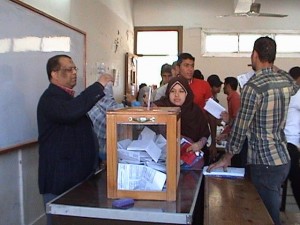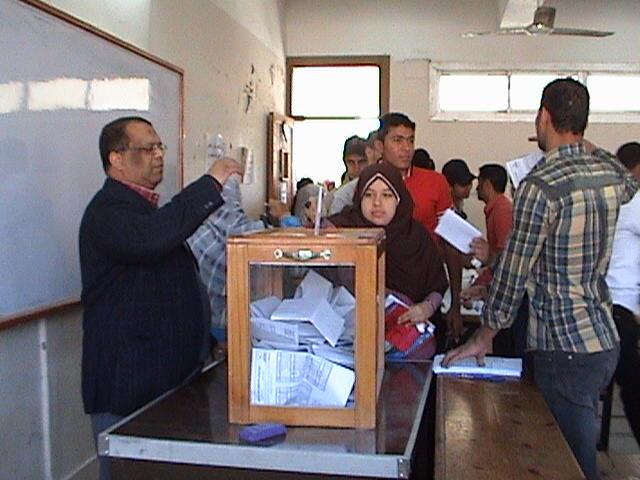
(Photo Courtesy of Media Centre in Minya University Official Facebook Fan Page)
The Association for Freedom of Thought and Expression (AFTE) said student elections were more democratic and showed higher participation rates than previous years but the current elections system may need reconsideration.
The NGO released a report Thursday titled the, “fall back of the Muslim Brotherhood students and the rise of new student groups.”
After being postponed several times, student union elections were held last March and April. The student union elections in college and universities were held across the nation between 4 March and 9 April. They were followed by Egypt’s Student Union elections which were held in late April.
The elections were the first to be held based on bylaws drafted by students.
The current elections system is a “hierarchical” one according to the report and the higher up in the hierarchy, the less the people who can vote. “As a result of this system, it is possible to find the results of the top levels of college or university unions completely different from the orientations of the voters at the base level,” the report said.
At the level of Egypt’s Student Union, the report suggests that the executive office of the union has no powers compared to the powers of the president of the union according to the bylaws. The executive office does not monitor the president or take decisions with him or her.
Despite these issues, AFTE described these as the “most honest elections in decades.”
Independent candidate Mohamed Badran won the seat of Head of the Egypt’s Student Union. At the level of universities, the results showed a decline in the Brotherhood’s popularity compared. Opposition parties dominated in Cairo, Helwan, Mansoura and Aswan universities.
